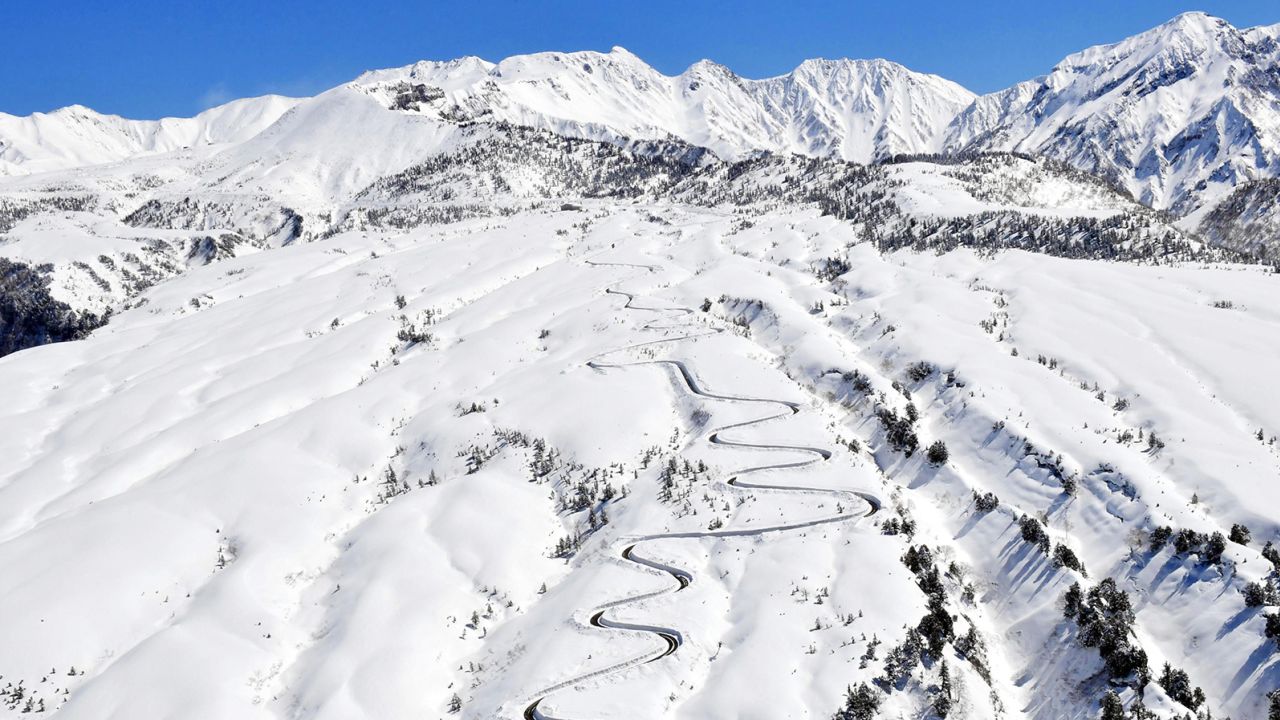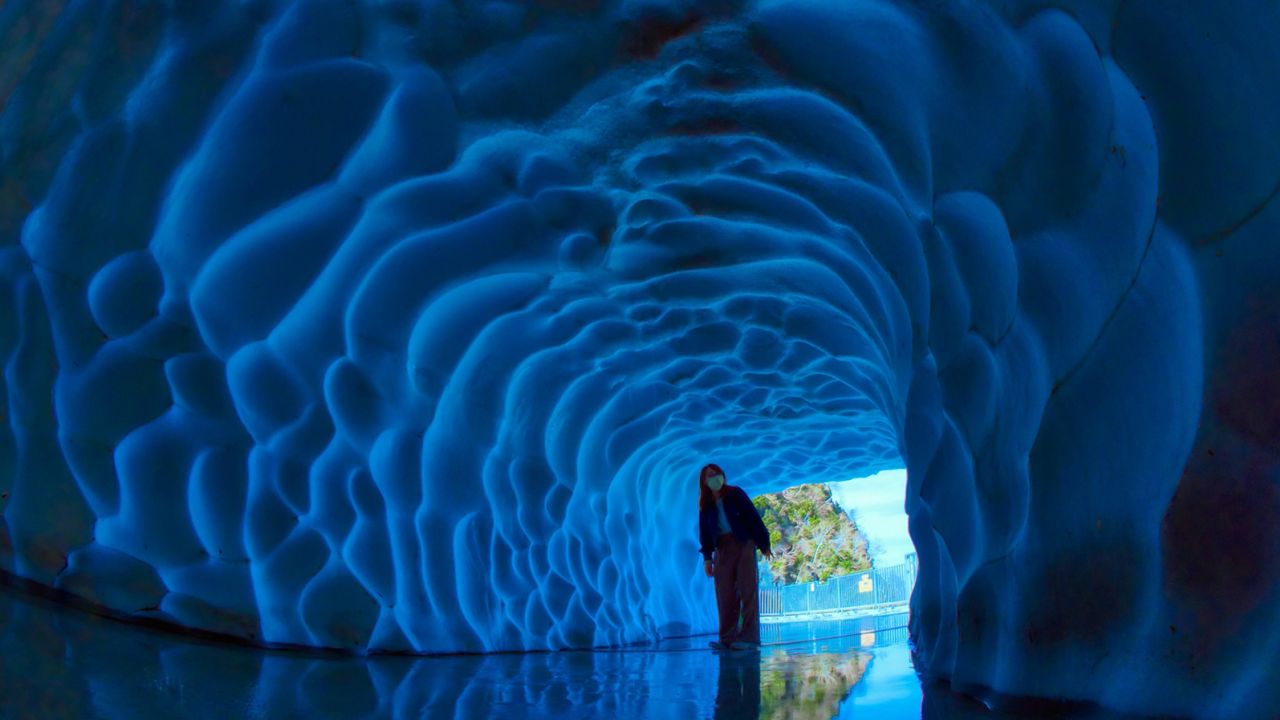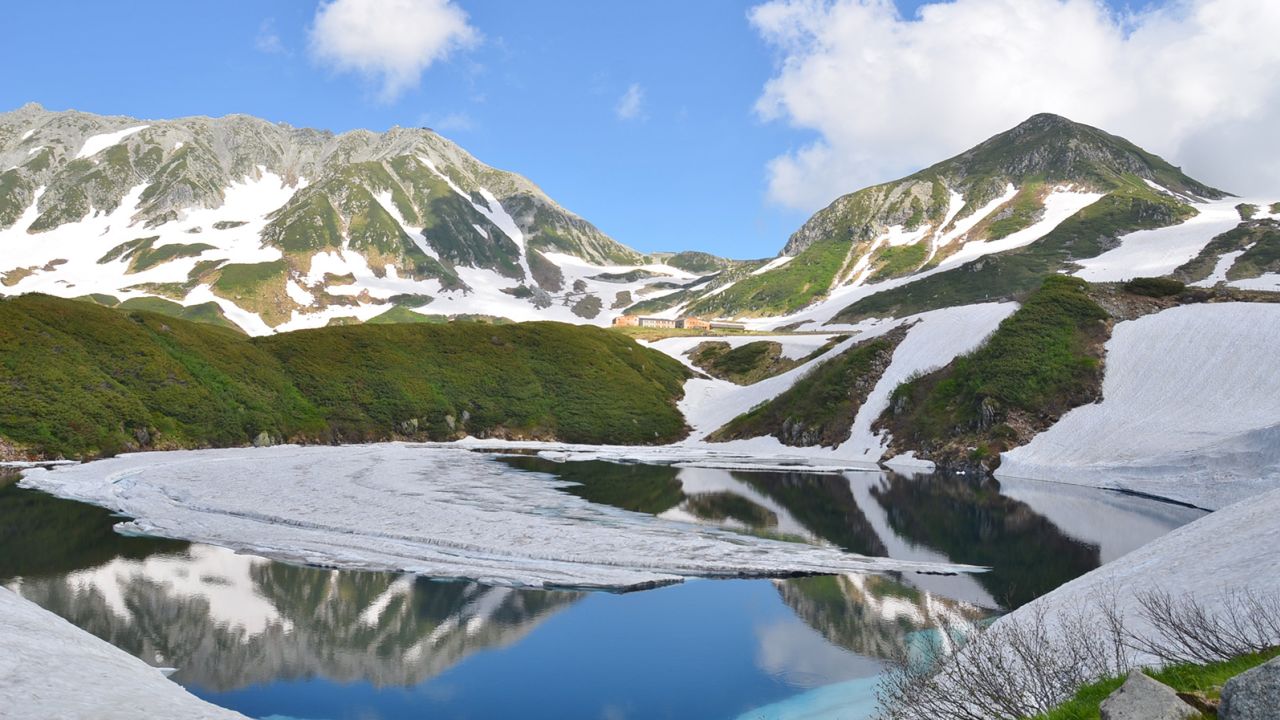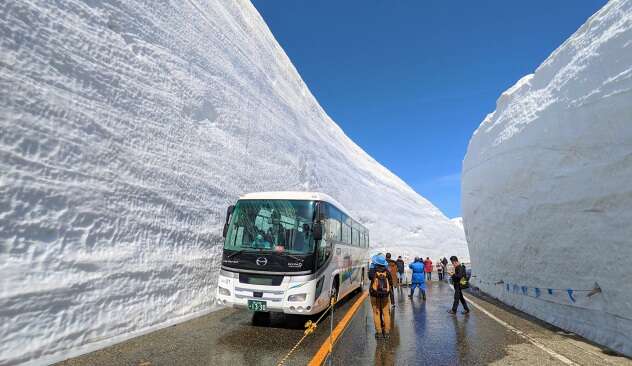(CNN) : A giant snow corridor near the otherworldly Mount Tateyama, one of Japan’s three sacred mountains, is reopening to travelers on April 15.
Called Yuki no Otani (or Great Valley of Snow), this 500-meter-long pathway cuts through towering snow walls that rise up to 20 meters at the highest point of the Tateyama Kurobe Alpine Route.
Stretching across the Toyama and Nagano prefectures north of Tokyo, the 90-kilometer sightseeing route – dubbed the “Roof of Japan” – offers incredible views of the 3,015-meter Mount Tateyama and 2,478-meter Mount Akazawa-dake peaks, while providing access to everything from Japan’s highest altitude hot spring to the country’s highest waterfall.
But the route’s biggest attraction is the snow walk, which takes around 20 minutes to traverse and will remain open until June 25.

The tourist attraction is the result of months of strenuous work by snowplow drivers who carve through the snowed-in Tateyama Toll Road.
The opening of the Yuki no Otani walk also marks the resumption of traffic through the entire Tateyama Kurobe Alpine Route at the end of winter.
Other attractions in the area include a separate Panorama Road, which gives trekkers better views of Mount Tsurugi, part of the Tateyama range. This one is only open until May 7.
Tourists can also visit the Snow Kamakura (Japanese igloo) and Snow Tunnel at Daikanbo Station, which also has an observation deck offering panoramic views of the Japanese Alps.

For the first time, 2023 visitors can help shovel the icy snow and take part in creating a new route – or as the attraction site calls the event, “Kuzusou Yukikabe (Let’s break the snow wall).”
The Snow Wall and other attractions may close during adverse weather. Visitors should check the official website, Alpen-route.com, before making the journey.
For those who would like to avoid crowds, the website encourages visitors to consider going in June.
“Even in late June, the walls are still over 10 meters high. As there are fewer visitors in June, you can enjoy a more relaxed sightseeing experience. Also, the weather in June is warm and more predictable,” says the official website.
Other attractions
The Tateyama Kurobe Alpine Route starting points are Tateyama Station in the west or Ogizawa Station in the east, while the Great Valley of Snow can be accessed from Murodo Station, which at 2,450 meters high is the highest station on the route.
It takes around an hour to reach Murodo Station from Tateyama Station, a journey that includes a 50-minute scenic bus ride and a cable car trip.

Travelers can opt to stay in one of the mountain accommodations on offer.
As private cars are prohibited, visitors must use local public transportation and trek along designated areas.
Some of the most scenic trekking routes include Bijodaira, a primeval forest that’s home to 1,000-year-old cedars and beech trees, and Murodo (near the snow wall walk), where visitors can find the photogenic volcanic crater lake of Mikurigaike and the oldest mountain hut in Japan.
The route is also home to Japan’s highest altitude hot spring – Mikurigaike Onsen at 2,410 meters in Murodo – and the country’s highest waterfall – Shōmyō Falls, which rises 350 meters.
Keen mountaineers can attempt one of the summits of Mount Tate, which offer views as far as Mount Fuji on a clear day.
Travelers visiting the Tateyama Kurobe Alpine Route are advised to wear winter clothing and gear suitable for trekking or mountaineering.
There are a variety of ways to access the area, with regular trains making the journey from Tokyo to Tateyama Station, though travelers will need to change trains in Toyama.







